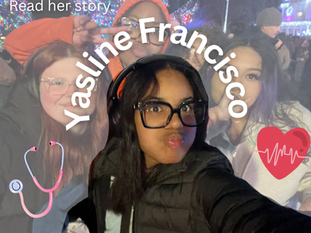Every female's body is uniquely different, but one thing almost all have in common is periods, also known as menstrual cycles. Most girls remember the first time they got their period. For some, it's a memory best kept in the back of their mind, while for others, it marks a moment of empowerment, a sign of growing up and embracing change.
This new change opens up doors to a range of possibilities, though it can be frightening. We're taught from a young age that periods typically start around puberty, ranging from the ages 8 and 16, marking the transition from child to young adult. Periods involve monthly bleeding that can last from 3 to 7 days, often accompanied by intense cramps and bed rotting. We learn the basics about how our bodies will change significantly, not just physically but emotionally, and as we mature, we begin to experience these changes firsthand.
However, do we really understand what a period is and how it fits into the broader context of our lives?
What Causes a Period?
First things first, let's address the elephant in the room: Why do we even have periods in the first place?
Let's start in the beginning, everything first occurs in your brain, where the hormones (chemical substance that regulates different functions) created in your brain act as signals to your ovaries (the organ that produces eggs and hormones). The hormones created from your ovaries send signals to the lining of your uterus to grow thicker. Why does the lining grow thicker you may ask? The lining of your uterus, specifically known as the endometrium, prepares for potential pregnancy including all the rich blood vessels and nutrients it may need. However, if pregnancy does not occur, that thickened lining sheds during menstruation, hence, the blood every month.
The menstrual cycle must take place every four weeks because every month, one of your ovaries releases an egg. The mature egg moves into the fallopian tubes, where it is available to be fertilized. This is called ovulation and happens about 14 days before your menstrual period starts. Therefore, while you can get pregnant at any point during your menstrual cycle, your chances of getting pregnant are increased during ovulation.
How Can I Take Care of Myself During My Period?
There are 3 methods that are most commonly used. It's best to start off by doing your own research about each method and experiment with which one is the most comfortable for you.
Pads are typically made from cotton and feature adhesive strips that stick to the inside of your underwear. They are available in various sizes and shapes to suit different body types and levels of menstrual flow. Many girls prefer pads when they first start menstruating.
Tampons, on the other hand, offer convenience for activities like sports or swimming. They are cotton plugs inserted into the vagina using an applicator to absorb menstrual blood.
Menstrual cups are made of silicone and are inserted into the vagina to collect menstrual blood. They can be worn for longer periods and emptied as needed.
Additionally, our menstrual cycles come with a range of emotional and physical symptoms. What are these symptoms and how can you overcome these stresses in the best way possible?
Acne - Your skin is more prone to acne breakouts due to things such as your estrogen and progesterone levels dropping just before you get your period. This results in your oil glands producing more than necessary and creating clogged pores.
Cramps - While some women rarely get cramps, others often have a painful feeling in their lower abdomen or pelvis. Cramps during your menstrual cycle are caused by uterine contractions.
Mood swings - Serotonin levels in your brain change as your menstrual period nears. When there's an insufficient amount of this brain chemical, it can contribute to factors such as premenstrual depression, fatigue, or sleep problems.
It's very important to remember these symptoms aren't the end of the world (I definitely think this every time I'm on my cycle). You can take over-the-counter pain relief medicine to ease any cramps or headaches. Healthy diets play a big factor in alleviating symptoms. You can even go for a run or take a warm bath to improve circulation and provide a distraction. The most important, and I can't stress this enough, is to stay hydrated! You should be consuming about 11.5-15.5 cups (2.7-3.7 liters) of fluid everyday.
Normalizing Periods and Education
As you mature into adulthood, your period is a natural part of this process. It should never be something to feel ashamed about or feel uncomfortable bringing up. Creating a safe space for conversations about periods is crucial for younger girls who are still learning about their bodies, as it encourages them to seek help and decreases the risk of jeopardizing their health.
Understanding your body and its remarkable capabilities boosts confidence and promotes overall health. Monitoring your period can also help identify potential health risks. For instance, irregularities or extremely heavy bleeding may signal underlying conditions that require medical attention. If you have concerns about your health and menstrual cycle, consulting your general physician or gynecologist for guidance is recommended.
Feel free to leave any questions and comments you may have!











At about what age women body tends to stop the period?